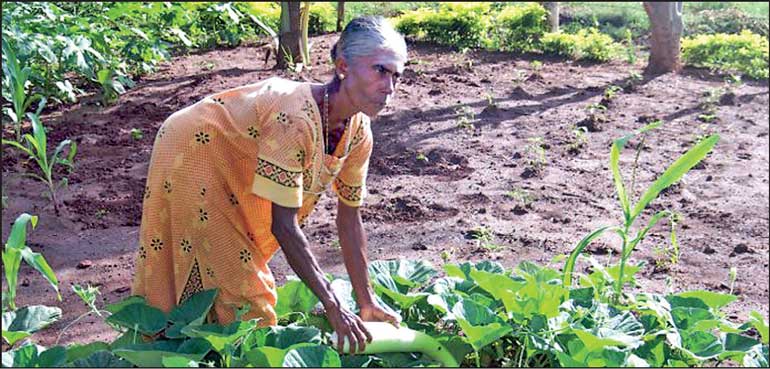Sunday Feb 22, 2026
Sunday Feb 22, 2026
Monday, 6 September 2021 00:00 - - {{hitsCtrl.values.hits}}

COLUMBIA, Missouri: Sri Lanka and the International Fund for Agricultural Development (IFAD) are working together to promote the island’s agriculture-based economy. IFAD, developed in the 1970s, has worked with Sri Lanka on more than 16 projects to reduce poverty levels. This has helped the country achieve middle-income status, yet many Sri Lankans still face malnourishment and unequal wages. Sri Lanka and IFAD are now partnering to create the Smallholder Agribusiness and Resilience Project (SARP) to combat poverty, food insecurity and gender inequality.
Sri Lanka and IFAD have come together to develop SARP to specifically foster rural development. The project was approved in 2019 and costs around $ 82 million. IFAD allocated $ 42.76 million while domestic financers offered $ 27.6 million. The World Food Programme and the United Nations Development Program covered the rest of the funding.
A total of 82% of all Sri Lankans live in rural areas and half of the impoverished population are rural farmers. The project’s objective is to reduce smallholder poverty and increase food security within the Dry Zone region. This will cover the land in more than six districts, all of which are in the northwest region.
Sri Lanka and IFAD outlined that there will be three target groups: individuals who are extremely impoverished, those with the potential to enter the market and commercially-oriented smallholder farmers. SARP plans to strengthen community engagement through value chain development. The project states that around 75 farm business schools are scheduled to open and innovative interventions will target youth unemployment.
Agrarian service centres and banks will transform into advisory and support facilities that will offer planning for farmers dealing with water and agricultural management. SARP will select 20 locations across six districts to increase their technical and financial standing. Additionally, staffers will receive training to assess risk management and loan portfolio management for the targeted groups.
Part of food insecurity goes hand in hand with poverty. Farmers who cannot afford to manage their land or crops cannot produce an adequate supply of food. In turn, many of SARP’s poverty reduction efforts will ultimately improve food production levels. With that said, Sri Lanka and IFAD have still outlined several ways in which SARP can encourage better food and nutrition security.
IFAD estimates that in 2017 around 900,000 of Sri Lanka’s population had a diet that fell under the “borderline food consumption levels”. As such, 20% of Sri Lankans younger than the age of five are classified as “stunted” and another “13% suffer from wasting”. This is one of the highest rates in the world.
One of SARP’s plans for agricultural development is to address sectoral challenges for smallholder farmers. As mentioned, the project intends to open and encourage farming business schools. This allows for farmers to obtain a better education in how to properly use fertiliser to reduce water and food contamination as well as improper use of agricultural technology and inadequate food safety measures. SARP will also address land fragmentation and low productivity.
A few other goals of the project involve rehabilitating 260 water tanks to increase their holding capacity for irrigation farmers, fostering partnerships between farmers and private sectors and reducing production loss due to climate-related events. It is projected that SARP’s beneficiaries will improve their food security by 80% and increased their income by 108%.
The project acknowledges that Sri Lanka has made great improvements in gender equality already. However, it also highlights that the island ranks “75 out of 149 countries” in women’s rights. Notably, women make up 53% of the agricultural labour force yet only 30.2% participate in the labour market. This is because many women are not paid for their work because their wages are considered as family labour and go toward the household. If they receive pay, often a gender wage gap is present.
SARP will integrate targeted activities toward women in an attempt to empower and promote their rights. Farm business schools will need to take into account and address women’s inclusion under SARP’s jurisdiction. SARP will also provide grants and loans specifically for women to buy goods and services for their farms. In order to ensure implementation, the project will monitor, measure and collect data on changes in gender norms and women’s access to resources.
Impoverished communities in rural areas will always be a priority for Sri Lanka and IFAD. With SARP, the island and the institution can continue to promote economic prosperity, food security and gender equality.